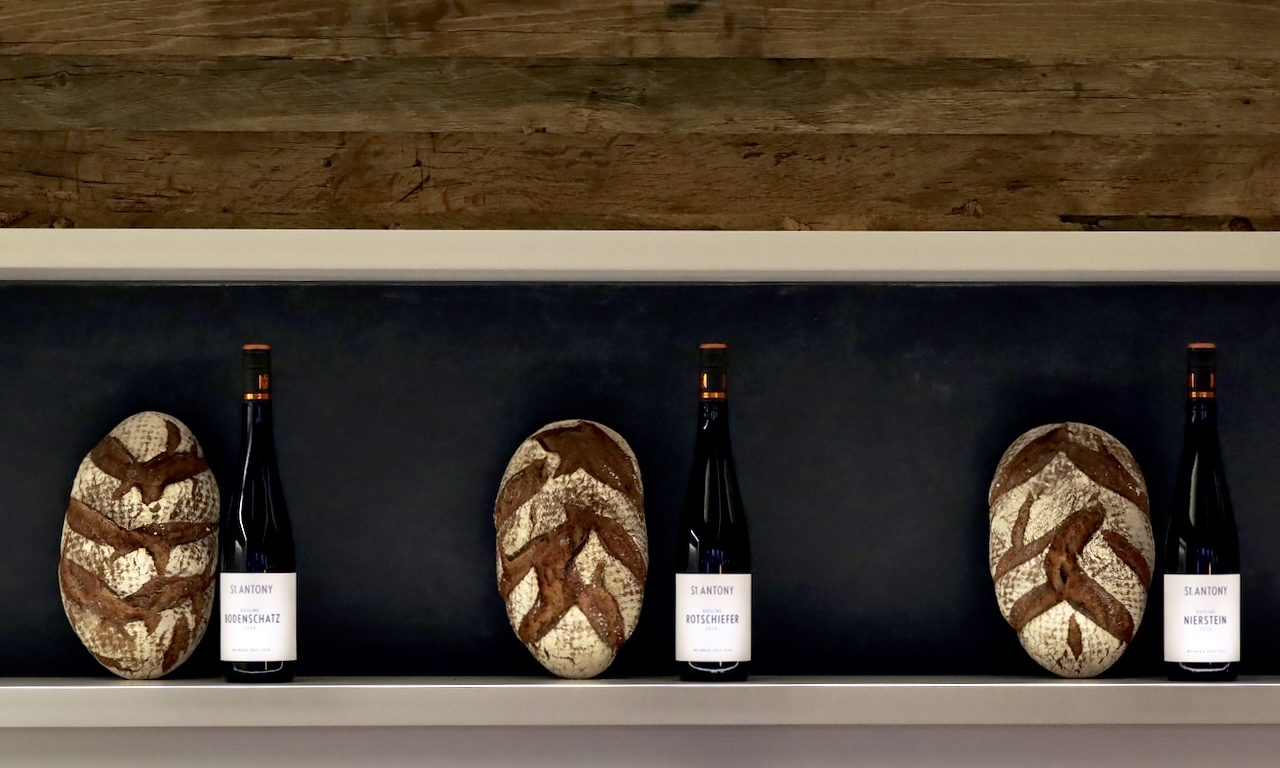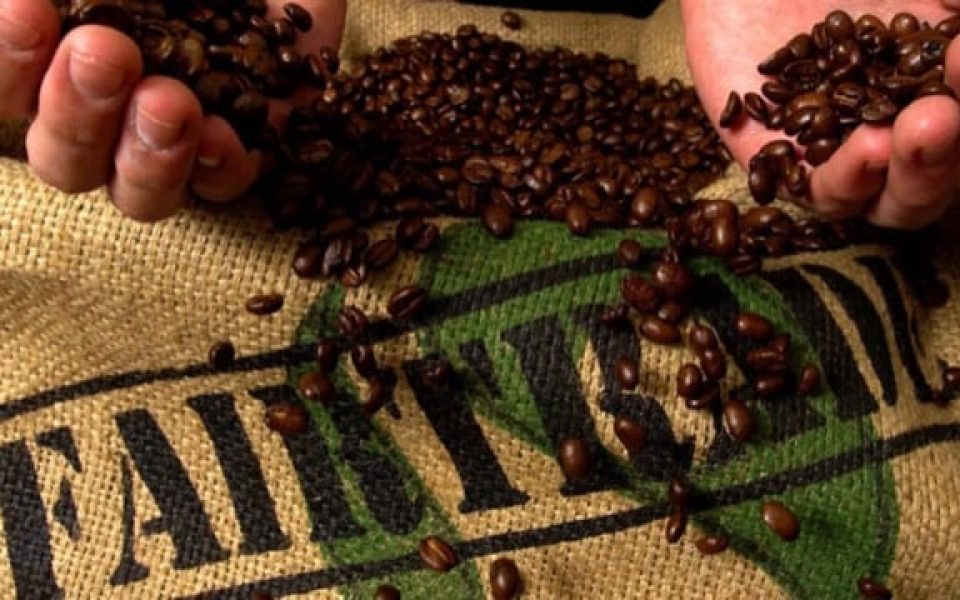Today we welcome master baker Kai Schröer at Dieters Weinbar. Kai, good to have you here. What would you like to drink? “I ‘m such a Riesling sniffer. I ‘ d like to try a Rheingau Riesling if you have some.” And as luck would have it, I know by now what people want to drink at our place. As it happens, I have a 2018 Kiedrich Gräfenberg Riesling for you. “Grosses Gewächs” from the phenomenal, from the outstanding, from my heart’s winery Robert Weil! Cheers. And now: please introduce yourself … I am a trained master baker and bread sommelier. Together with my father and my brother, I run the Schröer bakery. My father is the second generation of our family business, we are accordingly the third. Backhaus Schröer, with its headquarters in Mainz-Kastel, has been in business since 1951. We now have 52 stores in the Rhine-Main area. So you’re actually exactly what I’m always criticizing: some big-time baker? Companies of our size are indeed often criticized. In my opinion, this is completely unjustified in our case, because we uphold the baker’s craft. We do not use any baking mix, premix or dough acidifier. Basically, we don’t put anything in a loaf that doesn’t belong there. We make our own leaven. Traditionally in the boiler. And we buy our flour from the Bindewald mill – which is about 70 kilometers away from us. Almost all our products from the region. To this day, we also use recipes that already came from my grandfather. We have been passionately involved for over 70 years, so unjustified criticism like this hurts us a bit.

Greatness does not exclude craftsmanship. It’s as simple as that. Where do you think this prejudice comes from anyway? I also know this from our business. In Germany, if you say that as a winemaker you cultivate 60 or 100 hectares of vineyards, many people assume industrial production. But on the other hand, they all buy Mouton, Cheval Blanc and Lafitte – they have well over 100 hectares and make billions from their wines. But that doesn’t seem to interest anyone. Is that typically German, this fear of size? Or how do you explain the fact that you are virtually denied your craft because you have 52 stores?
I think that has a bit to do with the German mentality. There are people who badmouth you when you grow and have economic success. All that when someone becomes bigger and successful. However, I also have to say quite clearly that the bakery industry also made mistakes in the 1980s and 1990s – with the increased use of baking mixes and dough pieces, for example. And that has also led to a certain uniformity, among the companies. And, of course, the impression is then created from the outside that it is all the same. Together with many colleagues, we are working against this image. Can you explain to us why you need to have a certain size in order to be able to operate successfully? When you get bigger, the company has certain advantages in purchasing and production – larger quantities can simply be produced more efficiently.en. In addition, there are also the complex food law requirements. After all, today we have to label nutritional values and allergens – this is all necessary and correct, but extremely time-consuming. I have an employee who implements this for all specialty stores. A small business has to do this work on the side. The larger the administrative construct becomes, the easier it is to implement bakeries that have some manpower. This is understandable and can certainly be applied to other industries. Let’s talk a bit about our joint bread project now, shall we? A mutual friend brought us together. He told me that I really had to try bread from you. First, I waved it off because of my prejudice against big-box stores. Finally, you brought me a bag of bread and rolls at an event. I tasted some and thought, “Oh wow, he can bake bread!” And then I actually got to look at the bakery and tell you about my dream of making my own St. Antony Emmer-Bread. Emmer is a primordial grain variety that I find incredibly brilliant. Then I said to you, “Emmer-Bread – can you do something like that?” We actually already had a little experience with Emmer. Near Stromberg, we found a mill that grinds Demeter-certified Emmer flour for us. With this we baked a loaf of bread. At first, we used only 20 percent of the whole-grain Emmer flour. In the end, however, we ended up with 30 percent. The remaining flour ingredient in St. Antony bread is Spelt. Overall, we did a lot of testing. Now we also add a little buttermilk, because it brings a fine, mild acidity and supports the spelt sourdough wonderfully. In addition, we have incorporated a little honey because it highlights the nutty flavor of the Emmer. It really has become an outstanding bread. We use it here at the winery at events and you sell it in your specialty stores and online shop.

One last question for you, Kai: Let’s talk about the future of the skilled trades and, in particular, the staffing situation. Is it a challenge for you to find staff and trainees? Yes, recruiting is a challenge. We are always working to ensure that we create good framework conditions and that the working atmosphere is good. We have a great team! However, we currently have vacancies, particularly in the area of trainees. We always want new trainees in all areas. We train bakers, confectioners and specialized salespersons. We can also provide a very good start to a career in administration. So, if you know anyone who would like to do an apprenticeship, feel free to let me know!
Editor’s Tip:
Listening tip: You can listen to the entire “Dieters Weinbar” episode with Kai Schröer e.g. streamhere. Bread tip : You can order St. Antony bread from Backhaus Schröer online here.



